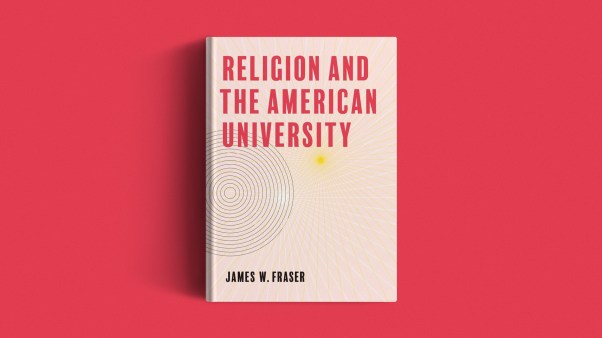|
The Jewish Annotated New Testament Amy-Jill Levine and Marc Z. Brettler Oxford University Press, November 2011 700 pp., $35.00 |
Amy-Jill Levine, a professor of New Testament at Vanderbilt University, has teamed up with Marc Z. Brettler of Brandeis University and 34 other Jewish scholars to produce the The Jewish Annotated New Testament (Oxford University Press). Levine, who teaches students preparing for Christian ministry at Vanderbilt Divinity School, hopes The Jewish Annotated New Testament will help Christians understand the Jewish context of their faith and help Jews see that the Christian Scriptures are not only informative about Jewish history, but are also in many places “beautiful and profound.” CT editor in chief David Neff recently talked with Levine about this first-of-its-kind study Bible.
Why publish The Jewish Annotated New Testament now?
The publication is certainly timely; as several friends, both Jews and Christians, have suggested to me: “It’s about time!” For Jews, looking at the New Testament is a recovery of part of our own tradition. Indeed, the more I study the New Testament, the more I learn about early Judaism, and consequently the better Jew I become.
For Christians and Jews both, it’s always helpful to know the common roots of church and synagogue, to understand what we share and how we came to separate. The annotations, which draw from contemporaneous Jewish sources as well as discuss later rabbinic views on the topics in question, provide this information.
In working with Christian congregations and clergy groups, I find an enormous interest in Jesus’ Jewish context—how the parables would have sounded in Jewish ears and what the controversy stories suggest about early Jewish practice. I think that if Christians want to take the Incarnation seriously, they should also take seriously where and when and to whom it occurred. Hence the volume has 30 short essays on such topics as the Pharisees, the temple, the ancient synagogue, Jewish parables, Jewish miracle workers, Jewish beliefs in angels and the afterlife, Jewish family life, and so on.
The Jewish Annotated New Testament also serves to correct unfortunate stereotypes of early Judaism that sometimes find their way into Christian preaching and teaching. It also addresses anti-Jewish teachings such as that all Jews are “Christ killers” or lovers of money or children of the Devil. The annotations provide historical contexts for the passages that give rise to such canards as well as note that the vast majority of Christians read their Bible as a text of love, not hate.
What are the key stereotypes that you wanted to clear up?
I find a fair number of Christians tend to look at early Judaism as comparable to the Taliban. That’s a gross misperception.
As is [the misperception] that all early Jews were looking for a warrior Messiah, and they rejected Jesus because he counseled peace.
As is [the misperception] that early Jews are so extraordinarily legalistic that they’re all sanctimonious and neurotic; then Jesus comes along and says, “Really, you don’t have to worry about the Law. Just love God and love neighbor. Be happy.” This stereotype doesn’t recognize that for Jews, following Torah is a way of sanctifying the body, of sanctifying time, of preventing assimilation, of celebrating their own identity. Jews then, and now, looked at following the Torah as a blessing and a joy rather than a burden.
How widespread among Jewish scholars is interest in Jesus as a Jew?
For people of my parents’ generation, the New Testament was substantially a forbidden book, but now we have Jewish students taking courses in New Testament on college campuses. The Reform Jewish movement requires its rabbinical candidates to take a course on Christian origins/the New Testament.
I think it is essential for Jews to understand Christianity. If we Jews want Christians to respect us—which means knowing about our traditions, our Scripture, our practices, and our beliefs—then we owe Christians the same courtesy. That means not only knowing what is in the Scripture of the church, but also knowing how Christians have interpreted that text over time. It means recognizing that the vast majority of Christians do not read their New Testament and come out as anti-Semites, that most of us read our texts graciously as texts of love rather than as texts of hate.
Since we Jews live in a predominantly Christian culture, knowing the New Testament also helps us understand art, music, literature, and political references.
If some rabbinical schools are requiring study of the New Testament, what should Christian seminaries do?
A number of years ago, I requested the Association of Theological Schools (ATS) put into a best practices recommendation that all candidates for Christian ministry have direct instruction on how to avoid anti-Jewish teaching and preaching. The ATS did not accept the request. So I work both nationally and internationally with clergy groups, seminarians, and religious educators to correct the major mistakes that are made—not because of bigotry, but because of ignorance. I show how knowing about first-century Judaism can help them not only avoid unintended anti-Jewish commentary but can also make their preaching more historically accurate and profound.
Were Jesus’ relationships to women as revolutionary as some have claimed?
Jesus has women followers and, indeed, women patrons, according to Luke 8. It’s women who were supporting the movement, and that would not be surprising. We have evidence of women serving as patrons of some Pharisaic movements, and we have evidence of women serving as patrons of Gentile figures as well.
The New Testament is a fabulous source for reconstructing Jewish women’s history. It tells us that women owned their own homes. For example, Martha welcomed Jesus into her home, and the house church in Jerusalem is at the home of Mary, the mother of John Mark.
It tells us that women have freedom to travel. Hence, they can follow Jesus from Galilee to Jerusalem, or appear at the feeding of the 5,000 (the demographics are low: it was 5,000 “besides women and children,” as Matthew tells us). It tells us that they have use of their own funds—for example, the woman who spent all her money on physicians, the widow who put her coins in the temple treasury, the woman searching for the lost coin. Women show up in religious and civic institutions. Jesus tells a parable about a widow who has access to a judge. We know about women in the synagogue and women in the temple.
Women followed Jesus for the same reason that their fathers, their sons, their husbands, and their brothers followed him: They found his message compelling.
There’s no single party line held by all Jews in the first century. We don’t have a head Jew to tell us what to believe. Even if there were, we probably wouldn’t listen.
Jesus is not anomalous in having women followers, and he’s not anomalous in speaking to women. But the one place where he’s distinct is that the women surrounding him and, indeed, the men as well, are predominantly celibate. It’s difficult to name a married couple, with the exception of Mary and Joseph, who are together when Jesus talks to them. The only couple we have, with the possible exception of the two on the Emmaus Road, are Jairus and his wife. When we think about the women in the Gospels—the Samaritan woman at the well, the bent-over lady, Mary Magdalene, Mary and Martha, Joanna, Susannah, the Canaanite mother with the demon-possessed daughter, and so on—none of them is accompanied by a spouse, and some of them have actually left their spouses. This leads me to suspect that women outside traditional domestic arrangements may have found a special place in Jesus’ movement, because he talks about a new family of faith. “Who are my mother and brothers and sisters? Whoever does the will of God is my brother and sister and mother.”
Perhaps women who have never married, widows, women who have been deserted by their husbands or divorced—perhaps they found a special role in the new kinship group Jesus was establishing.
So what was truly original about Jesus?
He’s the only person I can find in antiquity who says you have to love your enemy. But you have to look at the entire person to see his distinctiveness. Other people told parables. Other people referred to God as Father. Other people debated how to follow Torah. Other people lost their lives on Roman crosses. Other people proclaimed that God’s justice will be breaking in, and that we can live as if we’ve got one foot in that world to come.
But the way Jesus puts it together makes him distinctive: the striking images that he gives, the loyalty that he engendered from his followers such that they were willing to leave their homes and families to follow him and give up their lives for him. In that particular time and place, he was able to give fellow Jews a certain hope that some of them did not find elsewhere. To look at any one aspect of his tradition does not give us the full impact that he would have made on his followers.
We must also talk about Paul. Evangelical Protestants debate the New Perspective on Paul because it seems in tension with our 16th-century Reformation interpretations. At the same time, we really appreciate scholars like N. T. Wright.
The New Perspective allows us to see Paul operating within his Jewish context rather than against it. Since Paul claims that context—”a member of the people of Israel, of the tribe of Benjamin, a Hebrew born of Hebrews; as to the law a Pharisee, … as to righteousness under the law, blameless”—and since Paul is continuing to interpret Torah, I think the New Perspective is helpful.
I think it behooves anyone who takes Scripture seriously to continue to look at the history involved, to continue to question our own religious traditions over time, and to put our theologies in dialogue with what history can tell us.
One legacy of the Reformation is understanding Paul to say that his fellow Jews claimed law-keeping could lead to salvation—what we’ve come to call “works righteousness.” How did Jews in the first century think about why and how they would enjoy the world to come?
There’s no single party line held by all Jews in the first century. We don’t have a head Jew to tell us what to believe. Even if there were, we probably wouldn’t listen anyway.
Jews were not, and are not, following Torah in order to earn God’s love or in order to earn a place in the world to come. God’s love is already in place. That’s how Jews came into the covenant, for the covenant is a sign of divine love. Tractate Sanhedrin in the Mishna says all Israel has a share in the world to come (and then it has a few exception clauses). Jews are following Torah because that’s part of their covenant with God, and it’s how they return God’s love as well as show love of neighbor and love of stranger.
What are the really important Jewish themes that Christians tend to miss in the New Testament?
The really important Jewish themes are also themes in the church, so I don’t think Christians are missing them. These include the love of God (Deut. 6) and love of neighbor (Lev. 19).
There is a strong concern in both the Jewish tradition and in the New Testament for correct behavior. Jews are very much concerned with how one acts, with how one lives one’s life, and not just with belief. Throughout the New Testament, the issue is not only what one should believe, but also what one should do. Paul always ends his letters with ethical exhortation. So the Jewish concern for how you sanctify daily life carries on into the New Testament.
Copyright © 2012 Christianity Today. Click for reprint information.
Related Elsewhere:
Previous Christianity Today articles about the life and ministry of Jesus include:
Why We Need Jesus | Reason and morality cannot show us a good and gracious God. For that, we need the Incarnation. (December 2, 2011)
Jesus: Democratic King | Our most cherished democratic values are grounded in Jesus’ sovereign authority. (July 29, 2011)
Jesus vs. Paul | Many biblical scholars have noted that Jesus preached almost exclusively about the kingdom of heaven, while Paul highlighted justification by faith—and not vice versa. What gives? (December 3, 2010)
On the Jesus Trail | What we learned from Jews, Muslims, and Arab Christians as we traced the footsteps of Christ in Galilee. (April 28, 2010)










